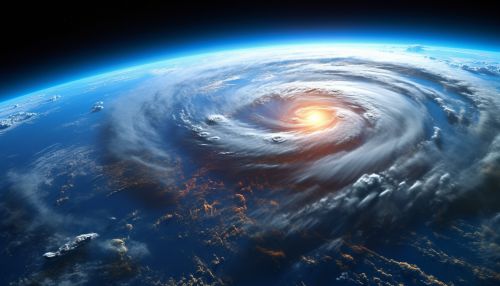Hurricane Prediction
Introduction
Hurricane prediction involves the use of various scientific methods and tools to forecast the development, track, intensity, and impacts of tropical cyclones, commonly known as hurricanes. The science of hurricane prediction has evolved significantly over the past century, with advancements in technology and understanding of atmospheric dynamics leading to more accurate forecasts. However, predicting the exact path and intensity of a hurricane remains a complex task due to the myriad of factors that influence these powerful storms.


History of Hurricane Prediction
The history of hurricane prediction dates back to the 19th century when sailors and coastal residents relied on rudimentary observations and folklore to anticipate the arrival of these storms. The establishment of the U.S. Weather Bureau in the late 1800s marked the beginning of systematic hurricane tracking and forecasting in the United States. The advent of weather satellites in the mid-20th century revolutionized hurricane prediction by providing real-time, detailed views of storm systems over the ocean.
Methods of Hurricane Prediction
Hurricane prediction involves several key components: tracking the storm's path (or trajectory), predicting its intensity, and forecasting its impacts, such as storm surge, rainfall, and wind damage. These predictions are made using a combination of observational data, numerical weather prediction models, and statistical methods.
Observational Data
Observational data for hurricane prediction comes from a variety of sources, including weather satellites, radar, weather buoys, and weather balloons. These tools provide information on the current state of the atmosphere and the ocean, such as temperature, humidity, wind speed and direction, and sea surface temperature, which are critical inputs for hurricane prediction models.
Numerical Weather Prediction Models
Numerical weather prediction models are computer programs that simulate the atmosphere and oceans to predict future weather conditions. These models use mathematical equations to represent physical processes such as the movement of air, the formation of clouds and precipitation, and the exchange of heat and moisture between the atmosphere and the ocean. There are several types of numerical models used for hurricane prediction, including global models that cover the entire Earth and regional models that focus on specific areas where hurricanes are common.
Statistical Methods
Statistical methods in hurricane prediction involve the use of historical hurricane data to forecast future storms. These methods can be used to predict the likelihood of a hurricane making landfall at a particular location, based on past hurricane tracks and intensities. Statistical models can also be used to estimate the potential impacts of a hurricane, such as the amount of rainfall or the extent of storm surge, based on the characteristics of past storms.
Challenges in Hurricane Prediction
Despite significant advancements in technology and understanding of hurricanes, predicting these storms remains a challenging task. One of the main difficulties is predicting the intensity of a hurricane, which can change rapidly due to factors such as sea surface temperature, wind shear, and the presence of dry air. Another challenge is forecasting the track of a hurricane, which can be influenced by large-scale weather patterns and small-scale features within the storm itself.
Future of Hurricane Prediction
The future of hurricane prediction lies in the continued improvement of numerical models, the development of new observational tools, and the integration of these resources into a comprehensive forecasting system. Advances in computing power and data assimilation techniques are expected to lead to more accurate and detailed hurricane forecasts. Furthermore, the use of machine learning and artificial intelligence in hurricane prediction is a promising area of research that could revolutionize the field.
